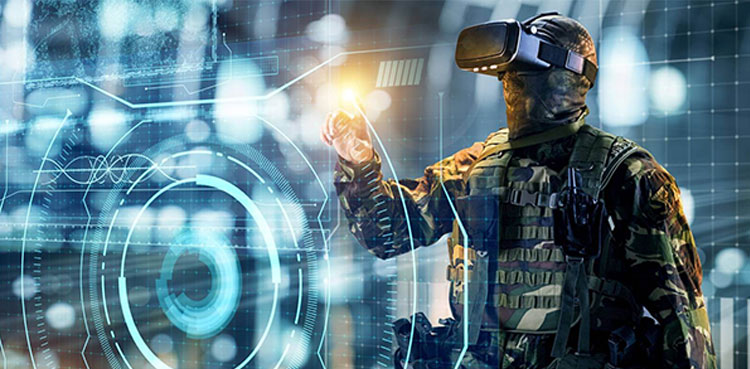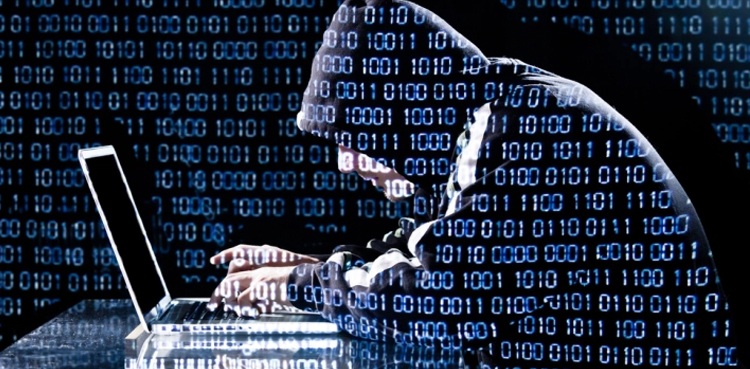
Rising concerns about cyber warfare

Internet-related problems are growing by the day, and this has become a singular worrying issue not only for state apparatus but also the corporate sector. This typical extension of internet facility has mushroomed into a virtual monster that has badly disrupted the accepted norms of communications. Few years before hardly very few imagined that this exceptional cyber facility would prove to be dangerous weapon waiting in the wings.
Cyber phenomenon is now treated as a weapon and efforts are undertaken to prevent its dangerous assaults. The most intriguing aspect of this nuisance is that this is an invisible enemy and no one knows where it will come from and what will be its target. This typical problem has given highly dangerous dimension to cyber-related matters with the result that its negative activities are now termed at par with warfare and it indeed is like waging a conflict against enemy forces.
In actual fact, cyber warfare is the premeditated, politically motivated attacks against information, computer systems, computer programmes and data which result in violence against non-combatant targets by sub-national groups or clandestine agents. Most of the attacking individuals, groups and entities remain mostly in dark and it is quite rare that they are brought out into open. The possibilities created for cyber terrorism by the use of technology via the internet are vast. Government computer networks, financial networks and power plants are all possible targets as terrorism may identify these as the most appropriate features to corrupt or disarm in order to cause havoc. Manipulation of systems via software with secret back doors.
Theft of classified files, erasing data, re-writing web pages and planting viruses of different kinds to disrupt communications are just a few examples of how terrorism can penetrate secure systems.

In the current global configuration, state governments are recognised as the functional agents that are mandated to perform political activities of states and are expected to exercise control over governance matters with the ultimate goals of gaining the mandate of people.
These objectives are achieved by using effective law enforcement tools and by providing a secure, efficient and democratic environment to people to provide them with satisfactory governance according to the mandate given to them by the people through an electoral process.
The law enforcement and security agencies rely extensively on civil and criminal records and other coordination networks such as emergency response and recovery networks which although act as a force multiplier for them but at the same time make them vulnerable to strategic cyber warfare. This is where the problem begins with governmental agencies striving hard to get to grips with such problem.
Along with exercising governance through general acceptance and approval of the electorate, another method employed by the governance network is coordinating media activities taking place in a state. Media is an important tool that frames the perception and psychological frame of mind of the population. Media around the world is extensively interlinked through networks which not only makes information to disseminate easily but also make media more susceptible to strategic cyber warfare.
These media networks can be hijacked for tarnishing the image of politicians and the government of a victim nation and can be used to induce fear and chaos among people. It is also discovered that psy-ops can be fully employed for hijacking media networks to spread a spate of fake news with a view to create social unrest not only within the confines of a state but also broaden it to international level that may prove extremely disturbing as they have the potential of creating deep misunderstanding between nations. Such attempts can create such high levels of confusion and the risks of intra-nation conflict.

The last couple of decades have seen a colossal change in terms of the influence that computers have on the battlefield to an extent that defence pundits claim it to be a dawn of a new era in warfare. Since computers are now widely available therefore the risks of cyber-related problems have grown manifold.
The use computers and information in defence has manifested into various force multipliers such as Information Operations, C4I2SR Systems, Network Centric Warfare, to the extent that commentators are terming this information age as a Revolution in Military Affairs (RMA). These advances have not only revolutionised the way in which wars are fought but have also initiated a new battle for the control of a new dimension in the current contemporary world that is dubbed as the Cyber Space.
Over time cyber warfare has assumed the shape of an extremely high risk assessed by a group of people who have very little information about the opposition, with every one drawing different meanings based upon their perceptions. Under these circumstances there was a gradual paradigm shift in military thinking and strategies from the strategic aspect to the tactical aspect of cyber warfare laying more emphasis on cyber-attacks and the need was enhanced for devising counter measures. This has resulted in the formation of a notion that cyber warfare or information warfare is a potent force multiplier which in a sense has downgraded the strategic aspects of cyber war to a low-grade tactical warfare used primarily for a force enhancement effect.
There is hardly any doubt that Cyber war is a new form of warfare and, rather than cyber war merely being an enhancement of traditional operations, traditional operations have become the force multipliers of cyber war.
The destructive potential of this relatively new technological threat, cyber warfare, is very high and their potential risks are ever increasing. Cyber-warfare is a form of information warfare; it is the use of the internet and related technologies by governments to damage or disrupt the activities or systems of an adversary or a private entity of value to an adversary. A related term, cyber-terrorism, refers to the use of cyber-warfare techniques by groups or individuals operating independently of national governments. A number of states,including Israel, the United States, Iran, and China have indicated that they have devised activecyber-warfare programmes and this information is a sign for other states to prepare for countering cyber warfare dangers.
Intelligence analysts believe that Iran’s cyber-warfare was behind a string of attacks that are monitored by cyber experts since many years. Its elaborate tentacles have been known to disable websites of numerous banks and disrupted the operations of many utility providing networks particularly the oil producing outfits. To counter this apparent danger many state operatives developed a computer virus named Stuxnet that was used to target the suspected proxy cyber warriors.

This counter programme was designed to target the similar networks of attacking entities that, in most cases are states themselves. Russia and Iran are known to employ weapons of cyber warfare against their opponents. Cyber experts are deeply worried about this dangerous trend and see a curious parallel between a weapon of mass destruction and cyber warfare.
Although the destructive potential may differ, governments developing cyber-warfare may be heading down a similar path, creating weapons that could possibly destroy stock markets and banking systems, flood dams and poison water supplies. The need is to guard against such potentially lethal weapon and the extent to which cyber-warfare arms race take place and whether the international community will seek to control or ban their use.
from Science and Technology News - Latest science and technology news https://ift.tt/Qtscdm4



0 Response to "Rising concerns about cyber warfare"
Post a Comment